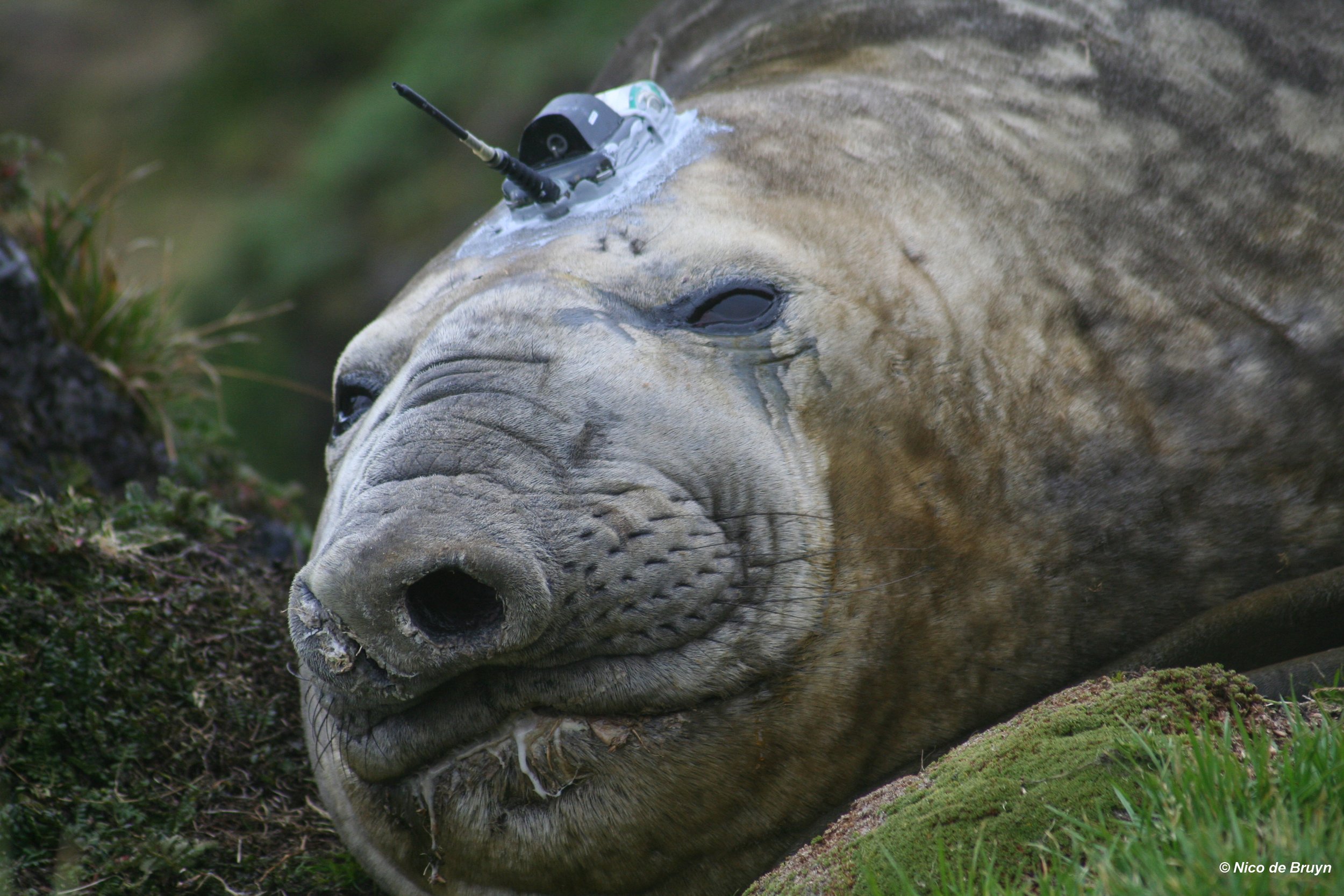In an exciting new study published in the Journal of Animal Ecology, MIMMP PhD student Kyle Lloyd and colleagues discuss the trade-offs between age-related breeding improvement and survival senescence in highly polygynous elephant seals.
Life-history trade-offs occur when an increase in one trait that improves fitness results in a decrease in another trait that reduces fitness. While compelling evidence of reproductive trade-offs exist for vertebrate females, few studies assess reproductive trade-offs in free-ranging males.
Male southern elephant seals provide an ideal model species to test for the trade-off hypothesis - they invest substantial resources in reproduction when competing for female harems, with the average male loosing up to a quarter of their body mass by the end of the breeding season. The dominant male mates with the majority of females in the harem, whilst subordinate males try to sneak mate females on the periphery of the harem, but are generally unsuccessful. Therefore, from social status, one can infer the relative breeding success associated with each male.
MIMMP PhD student Kyle Lloyd and fellow researchers Chris Oosthuizen, Marthán Bester and Nico de Bruyn investigated the costs of current breeding success on survival and future breeding success by comparing the life history traits of subordinate and dominant male Southern elephant seals from Marion Island.
Survival decreased with age for both subordinate and dominant males. Interestingly, dominant males maintained higher survival probabilities at all ages. Future breeding success probabilities increased with age for both subordinate and dominant males, with dominant males being more likely to maintain their status than subordinate males were in obtaining dominance.
The contrasting patterns of survival and future breeding success suggest a trade-off between the two life history traits. This trade-off was experienced by all males that recruited to the breeding population regardless of social status. However, no evidence was found to suggest that being a dominant male consecutively accelerated the rate of survival senescence when compared to subordinates. This suggests that dominant males were of a higher individual quality than subordinates as they could afford the additional cost of breeding successfully. Therefore, there was likely a cost of attempting to obtain dominance but no additional cost of breeding successfully.
To access the publication and read more, click here.























